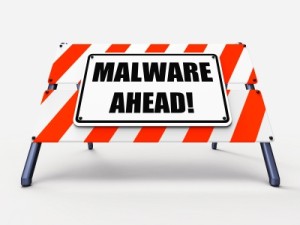Zeus Malware
Zeus Malware is the most notorious and successful malware ever to strike the banking industry. So successful that many other malware products have copied it. But lets keep this simple, Zeus malware on your computer can permit cyber criminals to clean you out!
This website is dedicated to keeping black people safe online. And this is a good example of something the African-American community needs to know about.
Zeus is a Trojan horse. That means it will disguise itself as something else to get into your computer, smartphone or tablet. Remember that malware, like viruses, require you to do something to allow it into your computer. Software can stop a virus or clean it up after its done it’s damage but no software can stop you from downloading it in the first place. That where education come in. That’s what I do at AACR.
Once Zeus infects a machine, it remains dormant, sometime for months, until you visit a web page with a form to fill out. Zeus’ most powerful feature is that it permits the criminal to add additional fields to forms in the browser. That’s right! This malware has the power to modify online forms in your browser. Some malware can re-direct you to a fake website. Zeus won’t do that. Instead Zeus will show you the legitimate website. Thats where this malware works its evil magic. Zeus might ask you to fill in an additional blank that it created itself. That’s how it steals information; banking information, passwords and user names.
Zeus can be fully customized to steal information and credentials from banks in specific geographic areas, like your city or county. It can be distributed in many different ways, including email attachments and malicious web links, also known as the drive by download. Once infected, a PC can be recruited to become part of a botnet. Remember what I said; there is no software to stop you from clicking on the wrong link or downloading an attachment.
Zeus is a professional malware product. It can be purchased on the black market and it is easy to use. You don’t have to be a computer geek to purchase the technology then use it to carry out cyber crimes. According to a 2010 report from SecureWorks, the basic Zeus package starts at about $3,000. Additional modules, which can cost as much as $10,000, are available for specific tasks.
Now you need to know how to find and remove the Zeus malware if you have it. First of all don’t think for a second that you don’t have it. Its a good possibility that you do. Because a Trojan horse malware built with a Zeus toolkit is adaptable and so many variations are out there. Zeus Trojans are often missed by even the best anti-virus software applications. According to Trusteer, a leading security vendor, 77% of the PCs infected with Zeus Trojans have up-to-date anti-virus software. So it doesn’t matter that you have the best anti-virus software available, you could still have it.
But you can download free Zeus removal software from numerous sites. And I suggest you do so as soon as possible. You will find the list of sites with free Zeus Removal software at the end of this article.
Another serious issue with Zeus and other malware is that people think they don’t have it on their computer. Since no money is missing from your accounts or no fraudulent charges show up on your credit cards you think you are safe. You are so wrong!
First of all not all malware steals financial information. Sometimes malware is designed to simply collect information. Keep in mind that you have a lot of information that can be sold on the Internet black markets. And there is a lot of malware designed specifically to collect your sensitive information.
A 2014 Trustwave Global Security Report showed 45 percent of data thefts in 2013 involved non-payment card data. What data? Information such as your username and passwords for websites, personal or family confidential documents, address books and email contacts, social security numbers, pictures and other personally identifiable information. Malware can steal anything that can be converted to cash via re-sale, wire transfers, identity theft or even extortion.
Another known malware labeled Pony not only steals banking credentials, but also all other user names and passwords on your computers. Hackers use the information to hijack your email, social network accounts and any other online accounts you have. Pony malware can also steal crypto-currency like Bitcoin. All this information and more allows criminals to rapidly rake in the cash or do other damage to your life.
What kind of damage? Cyber criminals use non-payment card information to initiate additional attacks against you, the victim. They steal your email address lists. This information is pure gold to spammers. They use these email adresses to send billions of spam messages, enticing offers that spread malware and find more victims. Black people love to forward prayers to spread the word of Jesus. You get them in your inbox or on your Facebook page all the time. And it will tell you to pass it on to five more people or ‘Like’ it. This could be a tool of information theft or just a spammer collecting email addresses. Remember there is no software to stop this. You have to know whats happening.
You can be the victim of an online extortion scam. Cyber criminals use specialized malware to extort money directly from you. Blackshades malware can hijack the webcams on your computer. The cyber criminal can then collect embarrassing pictures and videos of you and your family. Since they have stolen your email contacts and social media user name and passwords they can threaten to send the images to everybody you know. This includes your employer and everybody you work with; unless you pay. And it can sometimes be in the thousands of dollars! Ransomware like Cryptowall will freeze your computer or encrypt your valuable data. The cyber criminal then demands payment to release your computer and data.
There is a lot of malware floating around the Internet. Its all looking for the you to slip up and click on something you shouldn’t. Remember, a virus or other malware needs you to do something to help it work. Learn what not to do.
Now you know.
The following links will help you find and remove malware and viruses from your computer.
Bitdefender Zeus Trojan Remover







